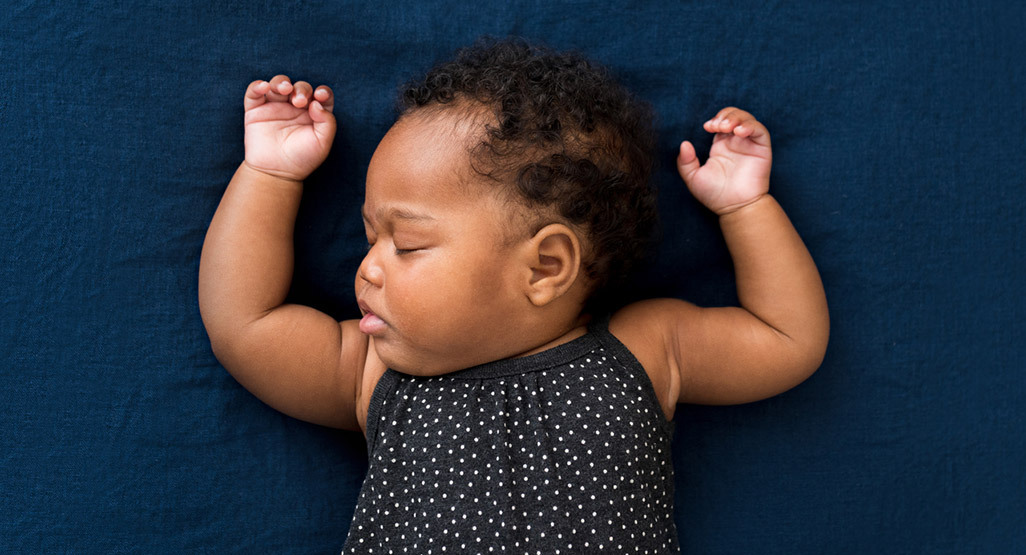
Key Takeaways
- There is no clear way to know if babies dream before the age of 3.
- If your little baby is moving in his sleep, it’s probably just his reflexes at play.
- Older children from 5 to 7 years old do report having dreams that are active and emotional.
You’ve probably noticed that your baby isn’t sleeping as soundly as you expected. You may have heard grunts or cries or even watched their eyelids flutter and their mouths move as they snooze. It’s natural to wonder what’s going on in their little heads during all this sleepy behavior and imagine them dreaming of your smile (or, more likely, milk).
Advertisement | page continues below
Although it is true that babies can have nightmares from a very young age, according to the American Academy of Pediatrics (AAP), they may not start dreaming until much later. Here’s what experts know about baby dreams and what’s really going on when their little heads are resting in the crib.
Do babies dream?
There is no clear answer to this question. Dreams usually occur during a stage of sleep called rapid eye movement or REM sleep. While adults spend 20% of their sleep hours in REM, babies spend close to 50% of their sleep in REM, according to the AAP. Although there are external signs such as crying in sleep or eye movements under the eyelids, there is not enough evidence to confirm that babies are actually dreaming during this deep sleep.
Here’s what we know: According to a study published in the journal, there are developmental skills that babies don’t have before age 3 that appear to be important for dreaming. Dreaming. “Babies don’t have the cognitive or abstract thinking skills to recall past events or imagine new scenarios,” explains Elizabeth Donner, MD, pediatrician and BabyCenter medical advisor. “And both of these things are necessary to create dreams in order to explain them.
When do babies start dreaming?
A child is expected to start dreaming between the ages of 3 and 5, but there isn’t much scientific evidence that it doesn’t happen earlier.
“It’s difficult to research dreaming in babies because they don’t have the developmental ability to recall their dreams and tell us what happened,” explains Dr. Donner. “We cannot be completely sure of the timing, what is happening in the dream, or any outward signs of dreams, such as movement.”
At first sight of the research, it seems that babies could dream as early as 6 months, because then they could start having nightmares. But if we dig a little deeper, most research says that while babies probably have nightmares, they may not dream until they’re about 3 years old. This is the age when they can start telling us about their dreams. For example, preschoolers ages 3 to 5 recalled rare dreams that they described as snapshots or slides of simple images, according to research published in the journal, Frontiers in Psychology.
It is difficult to research dreaming in babies because they do not have the developmental ability to recall their dreams and tell us what happened.
– Elizabeth Donner, MD, pediatrician and BabyCenter Medical Advisor
What do babies dream about?
Since we’re not sure if babies really dream, we definitely don’t know what they dream. When children begin to report their dreams (between the ages of 3 and 5), they are more like pictures in a book than action sequences, according to research published in Frontiers in Psychology. For example, some children may say that an animal is in their dream, but the animal was not doing anything or acting, it was just there.
Advertisement | page continues below
Older children, such as those between the ages of 5 and 7, are most likely to report having dreams that are more active and emotional (more like adult dreams). Maybe they were running in their sleep or they were watching something happen that scared them. This seems to suggest that dreams become more complex as children get older.
Watching your baby sleep makes it easy to see why so many people assume they are dreaming. They pucker their lips like they’re nursing or drinking from a bottle, and we say, “They’re dreaming of milk!” Although cute to imagine, these movements are probably just some of their reflexes at play. Even so, you can wish your little one “sweet dreams” before going to bed.
